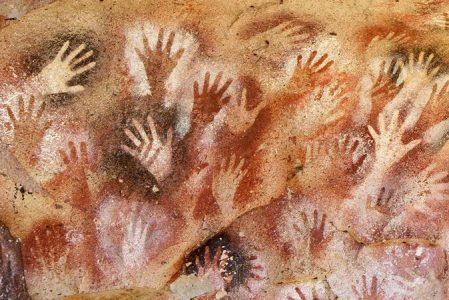Excerpt from Richard Rohr’s Daily Meditation
The Wisdom of Job
Tuesday, July 7, 2020
Theology does not by itself provide wisdom in crisis. All theology must become a living spirituality to really change us or the world. It’s disappointing that we Christians have emphasized theology, catechism, and religious education much more than prayer and practice. The biblical book of Job is probably one of the greatest books on prayer that has ever been written. It breaks our stereotypes of what it means to communicate with God.
If we view Job’s story as a journey into an ever-deepening encounter with God, we keep the question of suffering from becoming an abstract debate observed at a distance. It is a text that only fully makes sense to those who’ve felt suffering, been up against the wall, at a place where, frankly, God doesn’t make sense anymore and we no longer believe “God has a plan.”
Job loses his livelihood, his savings, his family, and his health. His practical, religious friends appear as self-appointed messengers, to speak what they are sure is God’s answer to Job’s suffering. They offer the glib, pious platitudes of stereotypical clergy. What they do is try to take away the mystery, but they cannot solve the problem. God says you cannot solve the problem of suffering, you can only live the mystery. The only response to God’s faithfulness is to be faithful ourselves.
Most of the things Job says to God in his pain are not what Christians have been trained to say to God. The pretty words are mostly gone; there’s no “swirly talk,” as writer-pastor Molly Baskette calls it [1], that Christians so love to put in their prayers. Instead, Job dares to confront God, the very thing many of us were trained never to do. In fact, we called it blasphemy.
During Job’s crisis, he yells at God, accuses God of all kinds of things, speaks sarcastically, and almost makes fun of God. “If this is a game you’re playing, then you’re not much of a God! I don’t need you and I don’t want you!” It’s this kind of prayer that creates saints. Yet we can’t pray with that authority unless we know something experientially about God. We can’t pray that way unless we are assured at a deep level of the profound connection between ourselves and God. It takes one who has ventured into that arena where we say angels fear to tread.
Ultimately Job’s story reveals that God cannot really be known through theology and law. God can only be related to and known in relationship, just like the Trinity itself. Or, as the mystics assert, we know God by loving God, trusting God, and placing our hope in God. We cannot really “think” God.
Job’s religious friends and advisers have correct theory but no experience; thoughts about God, but no love of God. They believe in their theology; Job believes in the God of their theology. It is a big difference. The first is information; the second is wisdom.
READ MORE HERE
[1] Molly Phinney Baskette, Real Good Church: How Our Church Came Back from the Dead, and Yours Can, Too (The Pilgrim Press: 2014), 130.
Adapted from Richard Rohr, Job and the Mystery of Suffering (The Crossroad Publishing Company: 1996), 13, 47–49, 140–141.
Image credit: Cueva de las Manos (detail), Cañadón del Río, Santa Cruz, Argentina. Photograph copyright 2012 Pablo Gimenez.


